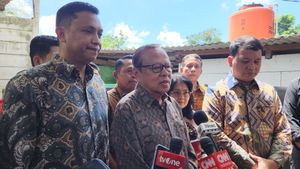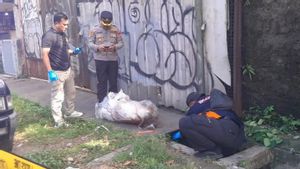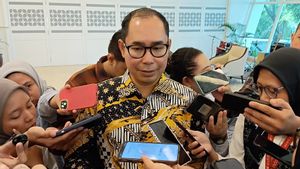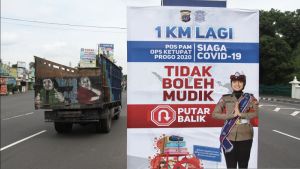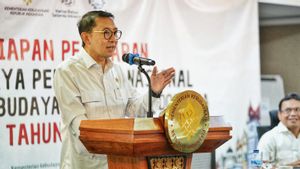JAKARTA - The provision of social security in the form of social assistance (bansos) for basic necessities in DKI for the poor and vulnerable to poverty due to COVID-19 is still ongoing until the end of the year.
However, updating of the data on families receiving social assistance is still not optimal. This can be seen from the results of a survey on the vulnerability of poor families in Jakarta by the Indonesian People's Struggle Union (SPRI).
This survey was conducted on 3,598 household heads (KK) in 5 administrative cities and the Kepulauan Seribu Regency. The survey was carried out online (online) involving 145 surveyors (assessors) in the period April 14 to May 13, 2020.
"We want to find out whether there are still poor people who deserve assistance but are not recorded. Then, we want to investigate social and economic vulnerabilities," Secretary General of SPRI Dika Moehammad said in a virtual discussion, Friday, June 26.
As a result, SPRI found that 73 percent or 2,892 families deserved social security, but had not received assistance. Meanwhile, 27 percent or 1,066 others are not eligible for social security.
This, said Dika, was due to an increase in the number of families in poverty in Jakarta. At the time before the COVID-19 pandemic entered Jakarta, there were 2,310 families declared poor. At the time of COVID-19, there was an increase to 3,194 families.
Then, as many as 92 percent of respondents also stated that they did not have assets that could be used during an economic emergency such as the impact of the COVID-19 pandemic. In addition, due to covid-19, 68 percent of respondents said they had lost their jobs. Only 32 percent stated that they still had a job.
"This means that many of them do not have social and economic resilience in the face of the COVID-19 pandemic," he said.
Need to update data on poor familiesBased on these findings, Dika recommended that the Ministry of Social Affairs and the DKI Provincial Government improve the data collection system and update poor families in providing social assistance.
In addition, he said, the government needs to maximize data collection models that accommodate civil society to be involved, such as providing corrections or assessments of updating data.
"We appreciate that the DKI Jakarta Provincial Government has made progress in the data updating process, such as data collection from below. However, some of our findings indicate that it is still difficult for the public to be involved," said Dika.
"Because, there is still a process that needs to be improved, especially the running of public data collection consultations at the village level so that it is more open," he continued.
Responding to this, Deputy Governor of DKI Jakarta, Ahmad riza Patria, said that his party continues to improve basic food assistance for the community, especially regarding quality and distribution time. However, at this time he admitted that there were still weaknesses in updating social security data.
"The Indonesian nation has weaknesses, we are weak in terms of data collection and data updating. When it comes to rice data alone, BPS data collection is different from the Ministry of Agriculture. BULOG also issues different data, the Ministry of Trade is also different again. Why? Because of different approaches, different interests. For that, we need good cooperation regarding data, "said Riza.
The English, Chinese, Japanese, Arabic, and French versions are automatically generated by the AI. So there may still be inaccuracies in translating, please always see Indonesian as our main language. (system supported by DigitalSiber.id)



